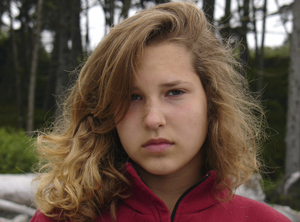
It is important to ask how much the denial of experiences in our childhood helps create that which we most fear will happen to our children.
by Rochelle Sparrow —
Our children’s path to self-discovery is a mirror reflection of how self-aware we have become about our own childhoods. As such, it is important to ask how much the denial of experiences in our childhood helps create that which we most fear will happen to our children.
A group of us parents once overheard a mother state that she needed to get a handle on her fourth-grade child’s behavior before it was too late and the child began relying on her looks to get by in life or, perhaps, engaging in extreme behavior, like addiction.
The mother had no conscious awareness that the future story of her child lay, at this point, solely in her own mind and had little to do with what might or might not happen to her 9-year-old daughter when she became an adult. So the question needed to be asked: what had happened to the mother at age 9?
She grew up in an abusive home and, as a consequence, felt powerless as a child. And yet at that time, as children do, she believed her home to be safe, loving and normal.
Because of her experience, this mother thought she needed to control her child. Yet she was recreating within her child the very same emotions she had experienced herself: powerlessness and fear. Unconsciously, she was hoping to resolve the same emotions she had experienced by having her child experience them. However, what would happen if she became conscious of her projections?
Another mother was in therapy for sexual abuse that she experienced when she was 9 years old and in the fourth grade. When her daughter started fourth grade, the child became extremely anxious and could not sleep. Through therapy, the mother discovered she was unconsciously giving her daughter messages that it was dangerous to be in fourth grade. Because the mother realized this and changed her behavior, her daughter quickly adjusted to life as a fourth grader.
When, as adults, we become conscious of how our childhoods were — the good, the bad and the ugly — we help our children gain empowerment in their lives. We can then send them the appropriate messages that who they are is not only acceptable, but also lovable. We help them make the transitions that will empower them as adults.
Rochelle Sparrow holds a master’s degree in social work and is a psychic trance channel, author and media personality now on shirleymaclaine.com. www.rochellesparrow.com or 602-430-6447.
Reprinted from AzNetNews, Volume 27, Number 5, October/November 2008.





September 6, 2012
Anxiety, Children and Teens, Family, Fear, Parenting, Self-improvement